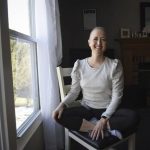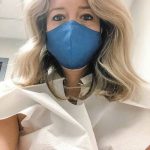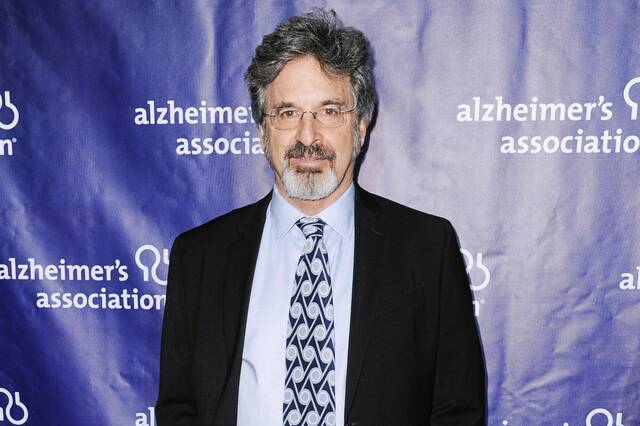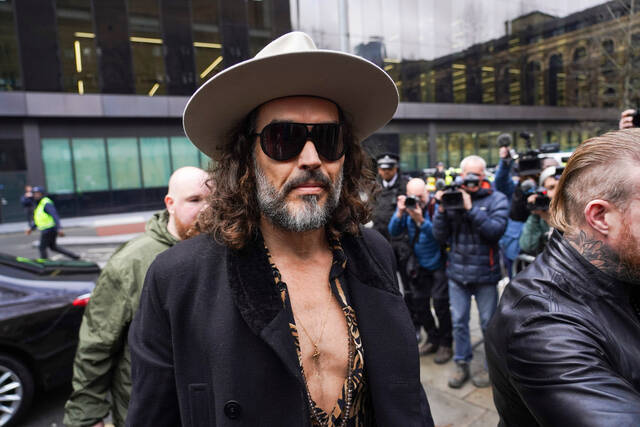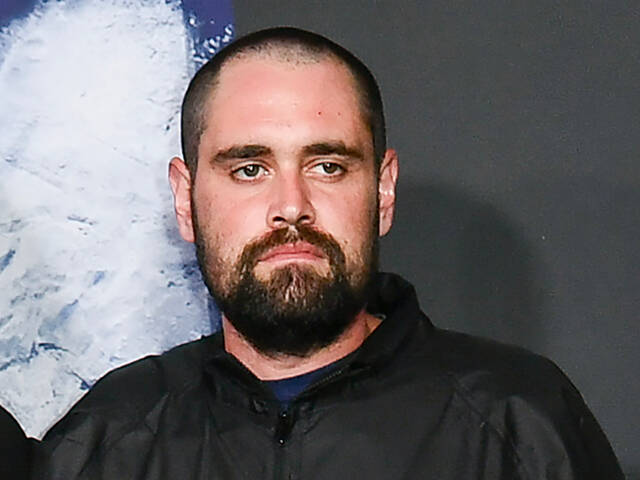Reporter’s note: When I heard last summer that my colleague from WPXI, Cara Sapida, had been diagnosed with breast cancer, my heart ached for her and her family.
One year ago, I, too, was diagnosed. My scenario is similar to Cara’s — a mother of two with no family history. I had a lumpectomy in February, followed by 14 chemotherapy treatments and then 20 sessions of radiation. I successfully completed all of my treatments in September and am cancer free.
When Cara messaged me on Monday to say that she had been declared cancer free, I felt I had to tell her story.
***
WPXI reporter Cara Sapida did a story on kickboxing in late spring. She was so motivated by the experience that the 38-year-old decided to try it herself. She thought it might help relieve her own stress as she separated from her husband and endured the covid pandemic.
On the morning of June 18, as she sat on her bed stretching — feeling proud of the newfound muscle soreness she had from class — Sapida leaned to the right with her left arm stretched up and over her head. Her right hand touched her left breast.
There was a lump.
All she could think about were her kids, Greyson, 4, and Lilah, 2.
Sapida immediately called her gynecologist and had an ultrasound that afternoon.
“But I knew,” she said. “I just knew.”
Days later, on an examination table, her best friend, who worked at the imaging center, performed the test.
“It’s all a blur except seeing a tear come down her face,” Sapida said.
They did the biopsy that day.
Not pink ribbons
Her initial diagnosis was ductal carcinoma in situ, stage 0.
But the lab got it wrong.
Instead, she learned days later that she had Stage 2, triple negative invasive ductal carcinoma — a rare and aggressive cancer. Although her tumor was just 1.7 cm when they found it, within two weeks, it had grown to 3.
But, Sapida said, hers was also the kind of breast cancer that responds better to chemotherapy than any other.
“That gave me hope,” she said.
The doctors formulated her treatment plan, which called for chemotherapy to be followed by surgery.
She had 12 weekly and then four biweekly rounds of chemo. In addition, she became part of an immunotherapy trial. She received an infusion every three weeks.
When Sapida started her treatments — during the pandemic — she found herself mostly alone.
Because of her weakened immune system, she couldn’t have visitors.
“Cancer during covid was very lonely,” said Sapida, who lives in Bethel Park. “I did not have in-person comfort at all. I can count on one hand the hugs I’ve had [from anyone other than Greyson and Lilah] since July.”
While some women respond well to anti-nausea drugs during chemo, others do not.
Sapida was often ill. She described it as full-body nausea mixed with heat.
“I felt like a fire-breathing dragon,” she said. “When I was sick, I was violently sick.”
It was then that she realized that breast cancer is not about pink ribbons.
“Breast cancer is ugly,” she said. “I would cry during those sick moments. I don’t want this for my life. I don’t want to do this.
“I would be so angry and bitter. It’s in those moments you don’t want people to call you a warrior.”
Several weeks into her treatment, her hair began falling out.
She shaved her head.
A local barber volunteered to help her. Using an electric razor, he sheared her blond hair into a pile on the back patio. He let the kids help.
She remained stoic.
“It’s just one giant step in the right direction,” she said.
Other side effects include what Sapida calls “chemo brain.”
She describes it as a fog — a type of delay, sometimes, or memory loss or forgetfulness. During the month of September, friends and family sent packages to help her through her treatments.
“I can’t tell you who sent a single thing,” she said. (She recently wanted to send thank-you notes, but was at a loss.)
But Sapida, who grew up in Turtle Creek and graduated from Woodland Hills High School, said there were also times she treasures.
“There were some really wonderful moments hanging out with my kids,” she said — cuddling in bed and watching movies, cooking together, coloring.
“When I was better, I was well enough to be very present.”
Her kids, she said, have been terrific.
“I think kids are so resilient,” she said. Basically, she wanted to reassure Greyson and Lilah that “ ‘Mommy is still mommy, but bald and sick sometimes.’ ”
Greyson made her coffee in the Keurig in the mornings.
Finally, a month after finishing chemo, on Jan. 7, Sapida had a double mastectomy. It’s the surgery her doctors recommended, and she didn’t hesitate.
“Part of fighting like a mother makes that decision easy for me,” she said. “Take both breasts. Do whatever you have to.”
Her recovery has gone well.
“Surgery was much easier than chemotherapy,” she said. “Chemotherapy goes excruciatingly slow, and it flies right by.”
On Tuesday, she had two of the four drains in her chest placed during surgery removed. She hopes the other two come out in the next few days.
Her reconstruction surgery is expected in three to four months, and she will continue getting the immunotherapy infusion through July.
“I don’t think you come out of this without being a changed woman — without having a changed perspective on life.”
Part of that is knowing how fragile life is, knowing how easily it can be taken away despite fighting hard.
Sapida said she will never again make jokes about getting older — even with 40 on the horizon.
“There will be pure appreciation for the opportunity.”
‘You don’t have to feel like a fighter’
As she continues to heal — both physically and emotionally — Sapida has been focused on how she might be able to help others.
In the early days of her diagnosis, what she needed, more than anything, was to hear from people who went through it and recovered.
“I saw hope through them,” she said.
Sapida wants to provide that support to others — tell them what to expect during treatment that doctors might not share.
“Find women in your community with your diagnosis who are on the other side of this,” she said. “Nothing can give you more hope than seeing them back to their lives, back to being a mom.”
As a journalist, there is no better feeling than making a difference, she said.
Using that idea as motivation, she revealed her diagnosis on social media on June 30.
She started using the hashtag #FightLikeAMother.
Immediately, well wishes from all over the world began pouring in.
“There were thousands of people saying they were praying for me,” she said. “I wasn’t ready for that. It was a really heartwarming moment in a dark time.”
But more than that, women who had forgone their mammograms — whether because of life’s hectic pace or the weight of the pandemic — reached out and said her post made them schedule them.
Hundreds of them.
Now, Sapida is writing a book about her experience. She wrote a poem that mimics Dr. Seuss’ “Oh, the Places You’ll Go.”
In it, she emphasizes that it’s OK for women in treatment to be tired and sad and have bad days.
“When I was in the dark days, I was a shell,” she said. “You don’t have to feel like a fighter. You don’t have to feel like a warrior. It’s OK. It’s OK to wake up and try to feel a little bit stronger the next day.”
Sapida remembers being curled up in the fetal position, literally, with her legs shaking.
“It was such a low point in my life,” she said. “Now that it’s over, I have to figure out how to be.”
That, she said, is why she is sharing her story.
“As women, we juggle all of these roles, and all of a sudden you’re diagnosed, and you’re a breast cancer fighter,” she said. “I promise, you might not be able to see it in the thick of it, but you’re going to be able to get back to all those other roles and live again.
“You are more than this fight.”




